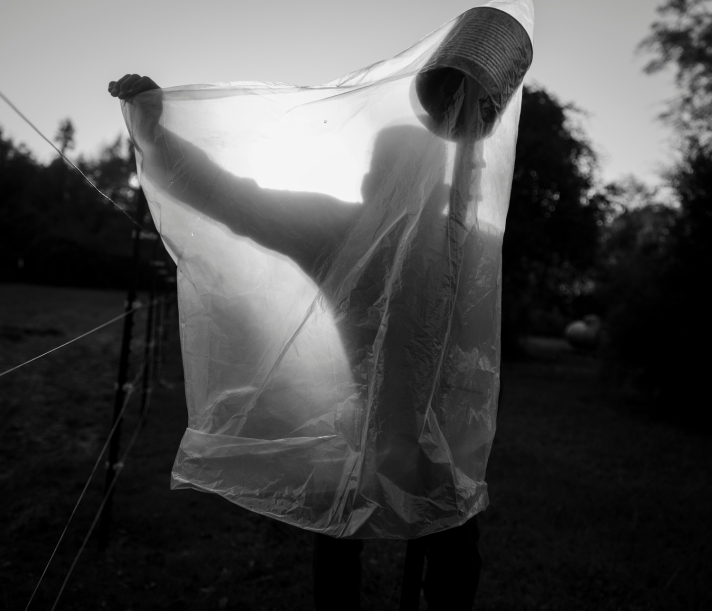

Spring Hill, Barbour County, Ala. Michael Farmer, 57, fashions a scarecrow next to his garden on Election Day. 2020.
Michael Farmer’s family has lived in Spring Hill for generations, where the predominantly Black community has faced a history of racial violence and voter disenfranchisement. On November 3, 1874 a white mob attacked the Spring Hill polling station, destroying the ballot box, burning the ballots, and murdering the election supervisor’s son. Farmer is a lifelong Democrat and military veteran who served two tours overseas in Operation Desert Storm and Operation Iraqi Freedom. When asked what he hoped might come from the 2020 presidential election, Farmer said, “I hope the young folks might think about what their ancestors came through to get where we are.”
Reviewers Choice Award
What Has Been Will Be Again
Jared Ragland | Alabama, United States
Photographer: Jared Ragland
Reviewers Choice Award
Exhibit Title: What Has Been Will Be Again
Location: Alabama, United States
Photographed at a critical moment of pandemic and protest, economic uncertainty, and political polarization, What Has Been Will Be Again bears witness to generational racial, ecological, and economic injustice in Alabama.
What Has Been Will Be Again is made with support from: The Do Good Fund; a 2020 Magnum Foundation US Dispatches grant; 2022 Aftermath Project grant; the Montgomery Museum of Fine Arts; Wiregrass Museum of Art; Coleman Center for the Arts; and Columbus State University.
From Indigenous genocide to slavery and secession, and from the fight for civil rights to the championing of Trumpist ideology, the state of Alabama has stood at the nexus of American identity. Begun in Fall 2020, the ongoing project, What Has Been Will Be Again, has led me across historic colonial routes including the Old Federal Road and Hernando de Soto's 1540 expedition to bear witness to and connect with individuals and communities plagued by generational poverty and environmental exploitation.
Accompanied by historicizing captions, the images catalogue sites of injustice, at once mirroring and challenging the silence of historical narratives that for so long have failed to speak the names, dates, and places where such violence occurred. Social isolation is a phrase and experience that has defined our recent past, and WHBWBA expressly evokes the loneliness that has characterized this period. Yet the project features subjects for whom social isolation is nothing new. WHBWBA, instead, confronts the long history of isolation and alienation—one that has exacted a costly human toll vis-à-vis willful neglect by a mainstream America only now starting to visualize what—and who—has been pushed out of our collective vision.
By linking events in Alabama’s centuries-long past with present-day issues, WHBWBA insists that it is impossible to view our current period outside of history. The confluence of the COVID-19 pandemic, Black Lives Matter movement, and seditious domestic terrorism marks our times as significant, but What Has Been Will Be Again confirms that the isolation, socio-economic inequalities, racism, and marginalization we’ve witnessed is not unprecedented. Instead, it speaks to our current moment while illustrating the perpetuated use of segregation and sequestration in service of the White supremacist myths of American exceptionalism.
Make Comment/View Comments